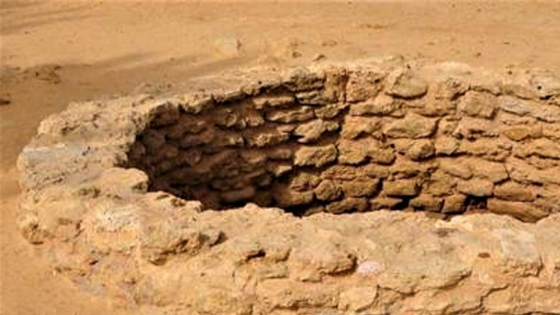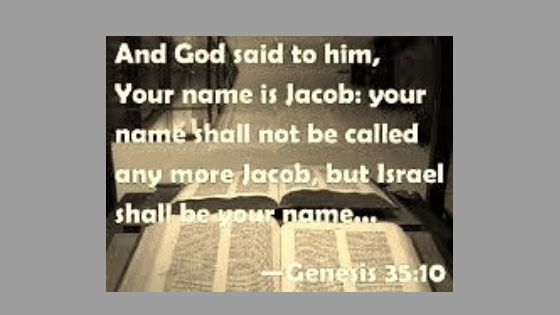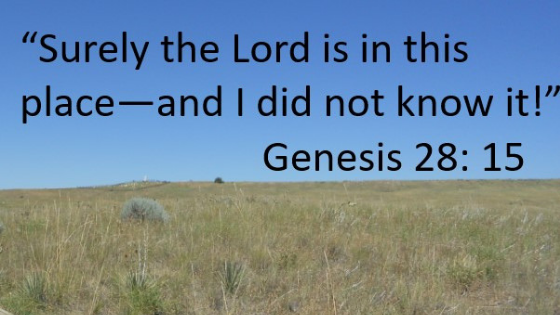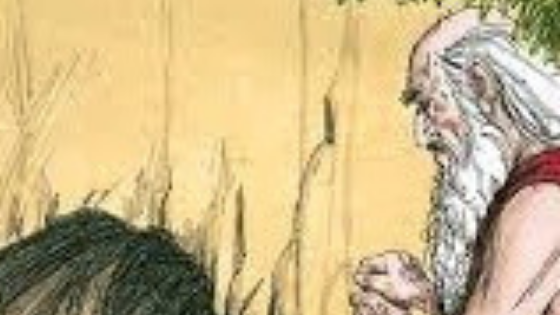Shabbat Table Talk
Parashat Toledot – Erev Shabbat 9 November 2018
Week of 4-10 November 2018
Torah portion: Genesis 25:19-28:9 Haftarah: Malachi 1:1-2:7
Theme: Isaac
Download
 Chapter 26 of Genesis is the only chapter devoted exclusively to Isaac. You know, that patriarch that people often have difficulties to remember. The character who is mostly remembered either by his father trying to sacrifice him or by his son tricking him. The figure who is always in the background. In this chapter he is finally his own man. He is a man of action: he leaves the place where he was born and settles elsewhere; he is exposed to the risk of losing his wife; he is the target of the Philistine envy; he is childless, but then has two sons who are very different from each other.
Chapter 26 of Genesis is the only chapter devoted exclusively to Isaac. You know, that patriarch that people often have difficulties to remember. The character who is mostly remembered either by his father trying to sacrifice him or by his son tricking him. The figure who is always in the background. In this chapter he is finally his own man. He is a man of action: he leaves the place where he was born and settles elsewhere; he is exposed to the risk of losing his wife; he is the target of the Philistine envy; he is childless, but then has two sons who are very different from each other.
But wait! Have we not heard about all these events before? We have: these are all the same things that happened to his father Abraham. As Ginzberg writes “The life of Isaac was a faithful reflex of the life of his father.” (Ginzberg, 259.) Even though chapter 26 is about Isaac, we are constantly reminded that he was the son of Abraham (verses 3, 15, 18, 24). It seems that Isaac’s main role is to be the link between different “generations” (toledot in Hebrew) that carries on God’s promise.
There is one activity that is particularly emphasized in Genesis 26: digging of wells. Wells had featured in Isaac’s life before: Abraham’s servant met his future wife at a well (Gen.24:11) and then Isaac himself met Rebecca after he had visited the “Well of the Living One Who Sees Me” or Beer-Lahai-Roi in Hebrew (Gen.24:62). Isaac and his servants reopen the wells dug by his father and rename them the old names (including Beersheba, see Gen.21:31). But he also has his own discoveries of living streams and deeper waters. It is no wonder that in the Jewish tradition Isaac has come down as a quiet man of reflection who digs deep for meanings and relationships both with men and with God, even if it is not obvious to a casual observer.
Isaac is all of us who cannot boast about extraordinary circumstances and heroic achievements. But that does not mean that we are less worthy of God’s promises and blessings. Isaac is crucial in creating a link between generations of active and famous people. But he is not just that, he is also the necessary link to continue God’s presence in this world through peace, humility and the courage to always dig deeper.
For Reflection and Discussion: [1] Are you more like Abraham or like Isaac? Reflect on the importance of them both in the biblical story and our lives. [2] Reflect on other passages in the Bible featured by a well or a stream. How are they similar or dissimilar to the story of Isaac? [3] I encourage you to read the reflection on Toledot by Rabbi Kligler, see http://lsi-wjc.org/toldot-isaac-digs-his-fathers-wells-anew Reflect on God’s name Mekor Mayim Chayim, “The Source of Living Waters.”
Bibliography: Ginzberg, Legends of the Jews (Philadelphia, 1956)
This week’s teaching commentary is by
Rota Stone, M.Litt., New Zealand and Bat Kol alum 2002, 2003
Email address: rotina@runbox.com
[Copyright © 2018]
………………………………………………………
PLEASE NOTE: The weekly Parashah commentaries represent the research and creative thought of their authors, and are meant to stimulate deeper thinking about the meaning of the Scriptures. While they draw upon the study methods and sources employed by the Bat Kol Institute, the views and conclusions expressed in these commentaries are solely those of their authors, and do not necessarily represent the views of Bat Kol. The commentaries, along with all materials published on the Bat Kol website, are copyrighted by the writers, and are made available for personal and group study, and local church purposes. Permission needed for other purposes. Questions, comments and feedback are always welcome.
………………………………………………
Bat Kol Institute for Jewish Studies, Jerusalem
~~1983–2018~~
“Christians Studying the Bible within its Jewish milieu, using Jewish Sources.”
Website: www.batkol.info; Parashah Admin: gill@batkol.info



